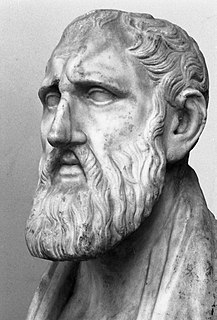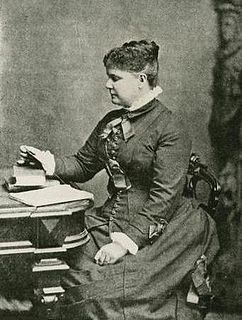A Quote by Hal Borland
The ultimate wisdom which deals with beginnings, remains locked in a seed. There it lies, the simplest fact of the universe and at the same time the one which calls faith rather than reason.
Related Quotes
No man can reveal to you aught but that which already lies half asleep in the dawning of your knowledge. The teacher who walks in the shadow of the temple, among his followers, gives not of his wisdom but rather of his faith and his lovingness. If he is indeed wise he does not bid you enter the house of his wisdom, but rather leads you to the threshold of your own mind.
Agnosticism is a perfectly respectable and tenable philosophical position; it is not dogmatic and makes no pronouncements about the ultimate truths of the universe. It remains open to evidence and persuasion; lacking faith, it nevertheless does not deride faith. Atheism, on the other hand, is as unyielding and dogmatic about religious belief as true believers are about heathens. It tries to use reason to demolish a structure that is not built upon reason.
Why does philosophy use concepts and why does faith use symbols if both try to express the same ultimate? The answer, of course, is that the relation to the ultimate is not the same in each case. The philosophical relation is in principle a detached description of the basic structure in which the ultimate manifests itself. The relation of faith is in principle an involved expression of concern about the meaning of the ultimate for the faithful.
Lies 1: There is only the present and nothing to remember. Lies 2: Time is a straight line. Lies 3: The difference between the past and the futures is that one has happened while the other has not. Lies 4: We can only be in one place at a time. Lies 5: Any proposition that contains the word 'finite' (the world, the universe, experience, ourselves...) Lies 6: Reality as something which can be agreed upon. Lies 7: Reality is truth.
In detachment lies the wisdom of uncertainty...in the wisdom of uncertainty lies the freedom from our past, from the known, which is the prison of past conditioning. And in our willingness to step into the unknown, the field of all possibilities, we surrender ourselves to the creative mind that orchestrates the dance of the universe.
The desire for total happiness and for ultimate freedom lies dormant in everyone. It is in the form of a seed. It is like a seed that contains a tree within it. In the same way, the fulfillment of man's ultimate desire is hidden in his very nature. In its perfectly developed state, it is our nature to be happy, to be free. Our real nature is the only thing that is true, and only perfecting it can bring complete satisfaction.
The root of almost every schism and heresy from which the Christian Church has suffered, has been because of the effort of men to earn, rather than receive their salvation; and the reason preaching is so commonly ineffective is, that it often calls on people to work for God rather than letting God work through them.
Of all the wonderful things in the wonderful universe of God, nothing seems to me more surprising than the planting of a seed in the blank earth and the result thereof. Take that Poppy seed, for instance: it lies in your palm, the merest atom of matter, hardly visible, a speck, a pin's point in bulk, but within it is imprisoned a spirit of beauty ineffable, which will break its bonds and emerge from the dark ground and blossom in a splendor so dazzling as to baffle all powers of description.

































